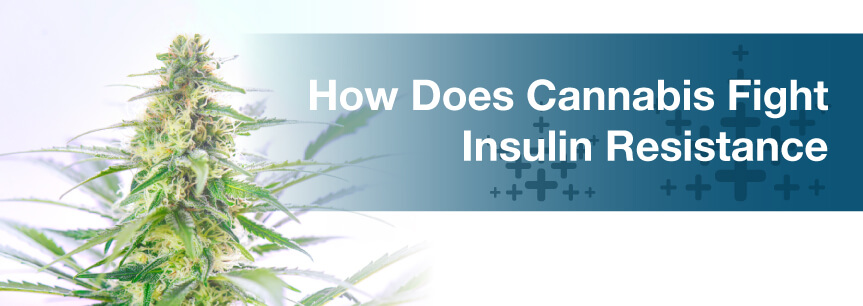
The main cause of type 2 diabetes is something called insulin resistance (IR). When this develops, it’s essential that patients seek out a medical professional, as leaving it untreated can lead to severe complications and health risks.
When diabetes develops, doctors usually prescribe insulin or another form of medication. But what if there was another way to help your body fight insulin resistance? The efficacy of medical marijuana treatments is debated everywhere. However, it’s been shown to aid many different conditions and symptoms. Recent research indicates that it may even help fight insulin resistance.
Although these studies are still in their infancy, it’s exciting news for type 2 diabetes patients across the county.
Insulin is a hormone produced by the pancreas. Its main job is to regulate the amount of glucose in the blood. Glucose is essential to all living organisms as it provides energy. When a patient has insulin resistance, it means they’re resistant to the insulin hormone, which results in increased blood sugar and can cause type 2 diabetes.
Several factors contribute to insulin resistance and the development of diabetes, including:
When a patient has IR, it can cause them to develop type 2 diabetes. Even if a patient has IR, if their pancreas can produce enough insulin, their blood glucose levels remain normal. However, after some time, if their pancreas is unable to keep up with the demand, it causes their blood sugar to rise abnormally. Once it becomes too high, that’s when type 2 diabetes is present.
In 2013, the American Journal of Medicine published a study that had some interesting findings about the use of marijuana and blood sugar control. For five years, a multicenter team analyzed data provided by the National Health and Nutrition Survey. They measured the fasting insulin and glucose of almost 5000 patients. More than 500 of these patients currently used marijuana. About 2000 had used cannabis in the past, but not recently, and the remainder had never used marijuana before.
After analyzing the data provided by these participants, the researchers found several surprising results:
This statistical data suggests there is an association between marijuana use and insulin levels. They concluded the cannabinoids present in the plant must play a key role in the peripheral metabolic processes.
Although the initial findings are extremely promising, research is limited. Marijuana is still classified as a Schedule I drug in the United States, which limits the number of studies that can be performed with cannabis. However, with the legalization of the plant in many states for medical purposes, its uses are becoming more widely acknowledged.
If you or someone you know has insulin resistance or has developed diabetes, finding a course of treatment is extremely important. They may need to take medication or insulin. However, cannabis can be used safely in conjunction with many medications because of its lack of harmful side effects.
If you feel you would benefit from using medical marijuana, search our database to find a marijuana doctor near you. These professionals are well-versed in the laws and qualifications for your state’s medical marijuana program. They will assess your condition to see if you qualify and answer any pressing questions you have.